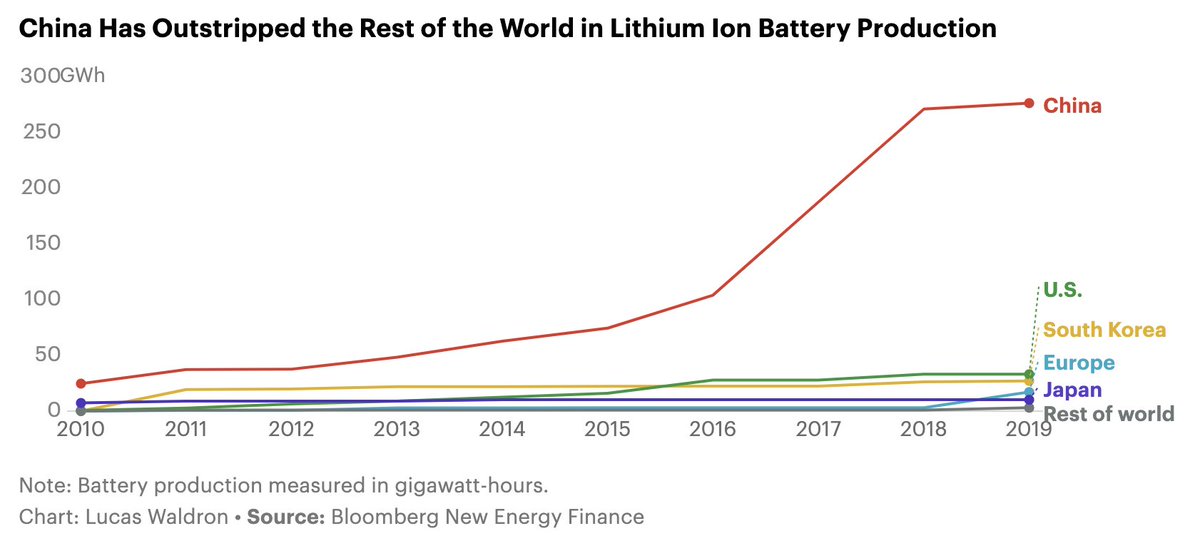NEW: With COVID19 exposing America& #39;s dependence on supply chains that often end in China, calls are mounting to bring medical manufacturing back onshore. But that’s not the only type of critical good people wish was still made here. Let me tell you about how we lost BATTERIES. 1/
Lithium ion batteries were developed in part by U.S. scientists. But American companies never had the patience to commercialize them. During the last economic collapse, Obama tried to turn that around, pouring $2.4b into battery companies that would put people back to work. 2/
Most of those early investments fizzled, however, because the Obama administration didn’t follow up its supply-side stimulus with enough on the demand side -- government procurement, charging infrastructure, more electric vehicle subsidies, aggressive emissions standards, etc. 3/
One of the companies to receive a huge chunk of that stimulus money, A123 Systems, closed its last U.S. factories last year, laying off dozens of production workers. It’s now owned by a Chinese conglomerate, and produces all its batteries in China and the Czech Republic. 4/
Meanwhile, China has roared past the U.S. in lithium ion battery production, using a forceful combination of subsidies and electric vehicle mandates, along with locking up supplies of raw materials. Europe is ramping up the same way; analysts say it will pass the U.S. in 2020. 5/
Why does this matter? Because without the positive feedback loop between engineering and the factory floor, it’s hard to make things better, faster, and cheaper. “We lost learning by doing,” as a former Obama administration official put it. (And jobs are important too.) 6/
Trump put tariffs on batteries, but experts say that hasn’t moved the needle. Industrial policy and economic competitiveness require more than just protectionism. It’s investment in research, workforce training, durable regulations that create stable markets. 7/
Instead, Trump has rolled back emissions standards, fought electric vehicle subsidies, and tried to slash funding for clean energy development. If Americans aren’t buying electric cars, they likely won’t be made here, and American companies will fall further behind. 8/
That applies to anything else we want to keep making in the U.S., whether for more secure military supplies or resilience to pandemics. Sprawling global supply chains are fine until things go haywire. Batteries show us that changing that equation is harder than it looks. 9/
Anyway here’s the story, which I hope is an interesting way to think about our current predicament: https://www.propublica.org/article/to-understand-the-medical-supply-shortage-it-helps-to-know-how-the-us-lost-the-lithium-ion-battery-to-china
And">https://www.propublica.org/article/t... here& #39;s how to sign up to get more stories like this delivered piping hot off the internet press: http://go.propublica.org/bigstory-social
/fin">https://go.propublica.org/bigstory-...
And">https://www.propublica.org/article/t... here& #39;s how to sign up to get more stories like this delivered piping hot off the internet press: http://go.propublica.org/bigstory-social
/fin">https://go.propublica.org/bigstory-...

 Read on Twitter
Read on Twitter


